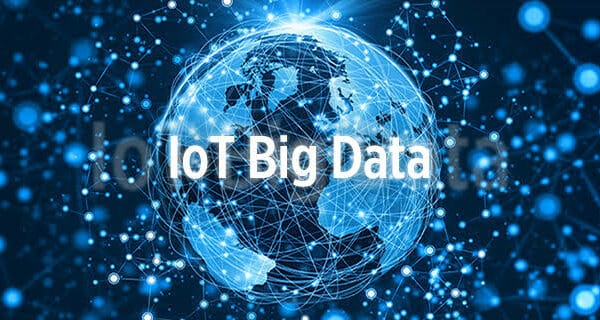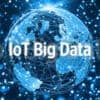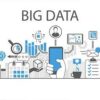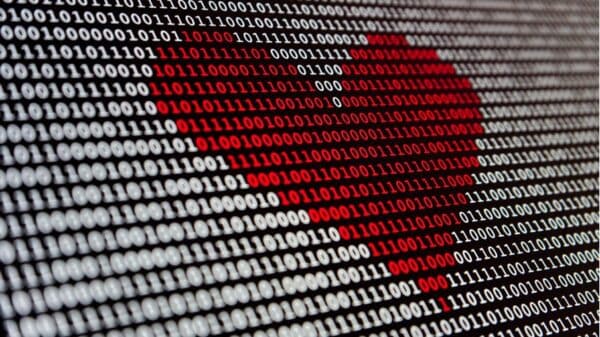Big data technology is one of the newest and most amazing technologies available to organisations of all sizes and industries today. In the past few years, most companies have started using big data to achieve competitors edge in business and also, to benefit their customers. Big data analytic platforms, like digital contacts, enable companies to observe sources such as websites, forums, blog articles, and social networks, for user feedback and views concerning their products and services in the market. Such vital information helps businesses across various types of industries to streamline and refine their services, in order to gain an edge over their competitors and provide exceptional customer service experience.
For customers, big data influence is far-reaching; however, the technology is often so understated that most consumers are unaware that big data is creating a positive impact on their lives.
While big data is crucial to how we live today, it is important that you back up this data safely to avoid the headache of losing such crucial data. SSD data recovery techniques will help you with any data recovery need you may have.
In this article, we are going to look at the various ways big data is affecting how you live every day.
1. TV Streaming
Are you aware that Netflix uses big data technology to make a decision on which films and TV shows to make next? They not only analyse the 2 billion TV hours we stream every month to recommend such programs we may like, but they use predictive modeling as well to a make decision on which new original program to stream.
Netflix uses big data to identify genres, directors, and actors that are popular in online TV streaming audience in order to create multiple hit series.
2. Online Shopping
When analysing the impacts of big data on online shopping, Amazon stands the obvious example. Just like Netflix, Amazon’s, amazing recommendation engine uses big data technology and its database of approximately 250 million customers to suggest their products using what we search at their website, our previous purchase records, what other people searching for similar products have purchased, among more.
However, it is not just your delivery and shopping that Amazon uses the big data technology for. They use databases to keep track of the over 2 billion items available in their warehouses, handling warehouse theft, and storing product data. The search box autocorrects options on Amazon is a product of the big data technology too by analysing each user search and keeping track of the autocorrect answers that are most clicked on. Amazon pioneered most of these techniques and are currently used a vast range of websites across the globe.
3. Retail
Big data is not only implemented in online shopping, but it’s also collected in all manners when you visit shops in the streets. This will equip you with detailed personalised shopping experience while allowing retailers to also have a deeper understanding of what exactly their customers want.
One of the key techniques your data is collected on how and what you buy is through the loyalty cards provided by various wholesale and retail companies, which is valuable for both you and the company. It’s worth noting that when you buy anything using your points or loyalty card, everything you purchase is recorded to enable the company understands popular products, where and when you shop, and what you have been buying elsewhere. Such information will help companies plan their stock, show any gaps available in the market, change their merchandising and product placement, and much more insight information.
For consumers, companies will give you offers and personalize coupons based on previous purchases you made, or allow you to redeem your loyalty points, to encourage you to keep going back for more shopping in their stores.
Big data may also be used on the shopping floor real-time, by bringing up consumer profiles that you can link to your activities on their website, data from your loyalty card, and social media accounts, staffs are capable of viewing what you are looking for to enable them to sell you more relevant, targeted products.
4. Advertising
Have you ever wondered how the internet is intelligent enough to know all the information you have been searching online? When you happen to notice a Facebook advert for a shirt you have been looking for on Amazon, this is all down to big data.
Majority of people today spend more time online and mobile every day hence, it is not a surprise that social media and websites are capable of gathering a large amount of data on our activities online. Your Google+1’s, Twitter activities, and Facebook likes show advertisers the celebrities, issues, TV shows, and news that you care about, enabling advertisers and companies to gather your interests accurately.
5. Crime
Today, big data is used to support our police force intelligently and also help keep our streets safer than before. With the help of visualization software and big data, police are now capable of predicting where and when a crime is likely to occur, what is known as ‘predictive policing’. This is accomplished by storing a full history of criminals data of an area in a database together with the algorithms based on the criminal behavior patterns. This provides real-time criminal activities visualization for timely actions.
6. Health Care
We get new breakthroughs over the years in the world of healthcare and science, and many of these are as a result of big data! One of the key challenges to the healthcare industry is not gaining access to data needed to treat patients. All the global historical data is filed on paper, while most countries do not have health data at all! However, the hard work of researchers and pharmaceutical companies is finally paying off after spending years performing digital data collection, inputting and aggregating.
Today, we have electronic healthcare systems that help hospital exchange and share data, allowing for evidence-based care and better research. These databases can as well be used when a patient is admitted to the hospital. Nurses and doctors may miss warning signs however, computers can make use of relevant big data recorded to give instant judgment.
7. Music Industry
The music industry has evolved greatly over the last decade, Very few people are purchasing physical copies of music! Instead, they are streaming, torrenting or downloading albums and songs and albums today.
This has opened up immense window for those working in the music industry by collecting online data from sources such as social media and Spotify. They no longer know information on the number of copies sold only, but now also gather information such as the frequency a song is listened to, the number of times a track has been shared, and how many fans are talking about the artist. These data are vital for both up-and-coming and well-known artists.
Artists and record companies can also use these data to identify their biggest fan bases, figure out where to tour and where they have great opportunities to promote their music. Big data is today being used in predicting the next hit songs across the globe.
8. Energy/ Power
There has been pressure across the globe for companies and people to reduce their energy consumption. Today we have exceptional access to how we consume our energy allowing us to make big savings and changes, thanks to the cheap big data technology.
Each building is different in the sense that they are used for different purposes hence, individual data sets that are collected by smart meters or cheap sensors, are required to gauge the best way for every building to cut down on energy consumption. These collections of data sets are what you can collect to make a big real-time map for a particular area.
Big data and smart meters are not just helping in avoiding energy waste, it can also assist energy companies to prevent energy theft, forecast on energy use, and provide accurate meter readings for customers.
9. Banking
Are you aware that banks take only second to recognize if someone has used your credit card for transactions? Huge amounts of big data in the banking industry have been successfully collected and utilized, hence computer software can today detect suspicious activity instantly and block it in real-time. Such suspicious activities may include money withdrawn from an account at an unusual place or time or a large amount.
Although hackers also are on top of technology and are capable of challenging these security measures, the banking industry has found effective measures to prevent such fraud, and are able to stay on top of the game for now with continuous developments.
Final Thoughts
It is within our thoughts that everyone should gain access to the limitless possibilities of big data. This will allow anyone to use the big data technology in whichever topic or industry they are interested in. Having seen how crucial big data is to our lives, it is important that you also employ the right recovery techniques should you lose your data. SDD data recovery techniques will help you recover any data lost in any form.
Olivier Payet is a veteran WordPress blogger with experience launching successful websites and blogs. You can find him online: @Olivierpayet01


























































































































































































